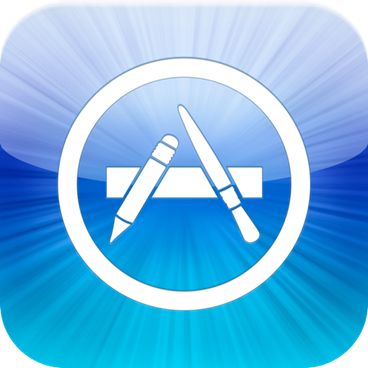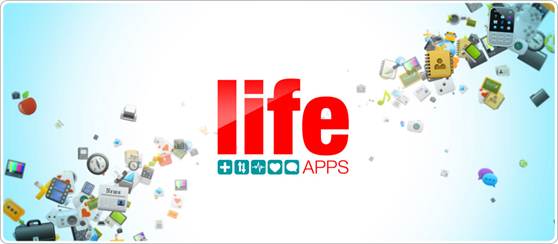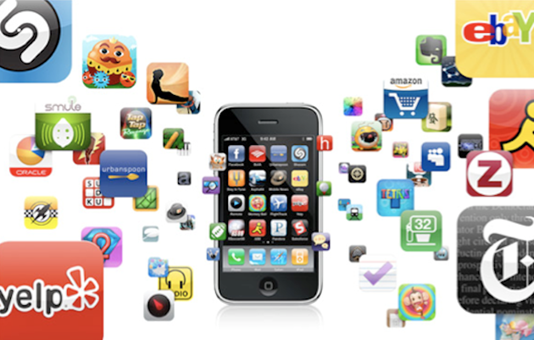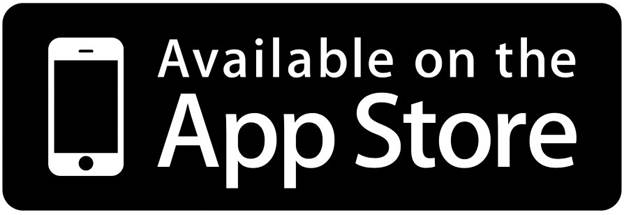The Seemingly Baseless Rejection Of Some
Third-Party Apps
As of the June 2012 Keynote Address at the
WWDC, there were more than 650,000 apps available at the App Store for iOS
devices. And according to Apple's own advertising, "There's an app for
that," leads us to believe we can get an app for anything and everything.
But when it comes down to it, it turns out that's not necessarily true.
Apple does end up rejecting apps. It has
certain guidelines that it follows meaning some things just simply aren't
allowed. However, sometimes it seems as if the decision on what to allow is
more or less a crapshoot. Some apps are rejected due to being inappropriate,
but anyone who has perused the app store can tell you that there are plenty of
apps out there that weren't rejected and are definitely inappropriate. I cringe
thinking of the apps my son downloaded on my iTunes account.

App
Store
Because Apple likes to keep certain
information close and private, it doesn't even allow developers to
publish their app rejection notices. They've tried several different ways to
forbid the publishing of their rejections, but it still gets done anyway.
They've labeled the rejection letters with a non-disclosure warning, but
it was still being done so often, that sometimes Apple even opts to call
developers to verbally reject them, just so there isn't anything on record to
be published.
It does make you question what the big
secret is. Why would Apple not want people to know that they reject certain
apps? Do they not use sound reasoning for the rejections? Do they just not want
to give the whole thing any more publicity?
To create an app, developers need to use
the iOS SDK (software development kit) that is made readily available. They
must also pay a fee to Apple of $99, a fee that is renewed yearly. Beta
versions of new iOS software are made available to developers as well, in order
to keep apps updated with the current iOS environment.
As far as pricing, developers can set
whatever price they want; however, Apple asks for a 70/30 split of the revenue
of the apps. Those setting the price of their apps as free don't need to worry
about this. There is, of course, fine print surrounding this in regards to refunds.
It's up to Apple's sole discretion if a refund will be granted to a customer,
and if it is indeed granted, the developer refunds the 70% and Apple the 30%,
but Apple is also allowed to take another 30% back from the developer to recoup
their losses.
Once the app has been developed, and it's
sent to Apple, it can be approved in a matter of days. It used to be a more
lengthy process, but they've reduced that timeframe, most assuredly to the
relief of developers. However, iPad apps can still take a while to be approved,
simply because of the newness of the platform.

The guidelines for approval of an app
aren't made public. To take a look at these, you would have to have registered
with Apple as a developer, using your Apple ID of course. What is publicly
known are some of the apps that have been rejected and their reasons, despite
Apple placing that gag order on the developers of rejected apps.
"Newspapers" is an app that
allowed users to read more than fifty newspapers from around the world. Apple
rejected it because they found that the British journalism habit of publishing
topless "Page 3 girls" was obscene. The periodical The Sun was
eliminated from the app after this and the app was approved. An e-books app,
Eucalyptus, was initially rejected for the same reason because one of the
included books was the Kama Sutra, but Apple later changed its mind.
Steve Jobs went on record as saying,
"We believe we have a moral responsibility to keep porn off the iPhone ...
Folks who want porn can buy an Android." The editor of a German magazine
countered, "We can't adapt European magazines to the standards of
Utah." That's definitely to the point. Others have complained that Apple
is being hypocritical, as while they see the "Page 3 girls" as obscene,
they don't seem to feel the same about the practices of Playboy and Sports
Illustrated and do allow their apps to remain in the app store. Fashion
magazine Dazed & Confused has nicknamed their iPad version the "Iran
edition" because of the purist restrictions Apple has placed on
them.
Cartoonist Mark Fiore has won the Pulitzer
Prize for his political satire cartoons, but Apple doesn't seem to see them as
award winning. He was the first Internet-only cartoonist to win the Pulitzer,
but according to Apple, his work displayed in the app NewsToons "ridiculed
public figures," It makes you wonder if Apple understands humor, as that's
pretty much the point. After public outcry, Apple reversed its opinion. Will
they do the same for The Obama Trampoline (self-explanatory), MyShoe, an app
that throws shoes at President George W. Bush, and Freedom Time that ticks down
the final moments of the outgoing administration?

The band Nine Inch Nails has an app of
their own, and while the first version, 1.0, was approved with no problem, when
they released an update, it was rejected for "objectionable content."
The developer didn't understand this, saying it was mostly just a stability
release to fix the app for international users. The issue was over the song The
Downward Spiral, yet Apple allowed iTunes to sell the music. Go
figure. Apple ended up reversing its decision.
Not getting Apple to budge at all on its
rejection, the South Park app was just pulled from the whole process.
Apparently the content is okay for the Comedy Central cable television channel,
but not okay for your iPhone. Mind you, Apple sells episodes of South Park on
iTunes.
Another app getting an "objectionable
content" rejection is Drones+, designed to track the fatalities of U.S.
drone strikes. It also shows the location of the strike on Google maps. The
New York Times is pointing out that the objection is
understandable, but Apple already has a similar app, The Guardian, that is
allowed.
Sometimes a rejection has nothing to do
with objectionable content. Apple is also rejecting apps that use the Dropbox SDK,
because they view it as an app that requires the user to have to make an
additional purchase to buy the app, just because they have to sign up via a
desktop version. It simply offers the option of buying more storage space. It
certainly doesn't require you to. However, it makes you wonder if the real
issue is because Apple doesn't want users buying the Dropbox space, because
they'd rather them buy it from iCIoud.
The approval and rejection process works
the other way as well. Initially, Apple approved an app called Baby Shaker.
It's exactly what it sounds like. You have to shake your iPhone until the baby
pictured in the app dies. After complaints from parents whose children died of
Shaken Baby Syndrome, Apple pulled the app from the store, apologizing for it
being "deeply offensive."
Apple also reversed its original approval
of the app I Am Rich. While most apps seem to cost between $.99 and $4.99, this
one cost $1000. All it did was put an icon on the menu screen that showed you
had enough money to spend $1000 on an app. They didn't even bother to
originally approve the I Am Poor app that puts icons of ramen noodles, tuna,
and mac & cheese on your screen, even though it was a bargain at $.99.
Apple complained it had "no user functionality."

Available
on the App Store
Apple originally believed the Pull My
Finger app had limited functionality, if you can believe it. It does exactly
what you think it does, imitating flatulence. They reconsidered, telling the
developer that they were caught off guard with this "genre" of apps.
Apparently telling someone to pull your finger has more functionality than
shaking your ta-tas. The app iBoobs that lets you jiggle women's breasts was
not approved because it was considered obscene.
So what are your options after Apple
secretly and unceremoniously rejects your app? You've put all this time into it
and are now being told "Thanks, but no thanks." The first obvious
choice is to fix whatever it is they're objecting to. For some apps, there might
not be much of any option for that. For something like iBoobs, there isn't much
they could improve on to get rid of the objectionable content. But for other
apps, there might be a way to clean them up enough to let Apple give it their
seal of approval.
There is also an appeal process that you
can go through, and from the past stories explained here, sometimes that in
itself is all it needs, just another set of eyes looking at the app with a
different set of morals. To appeal your app rejection, fill out this form and
submit to Apple. Of course filling out the form simply means supplying them
with your name and email. It's not like you get to argue your case, so mostly
you're just looking for a second opinion, and not really an appeal.
This means, for the most part, you're at
Apple's mercy. You won't be able to find a strict set of guidelines to creating
an app, because that takes away any chance they have of rejecting it under a
very large umbrella such as "objectionable." Are their reasons
baseless? Probably not, they just aren't making it widely known. They have
their own moral code, just as we have ours, and no one person's is ever going
to be the same as the person's next to them. But, if you want to get in the app
game, you also have to play Apple's game.